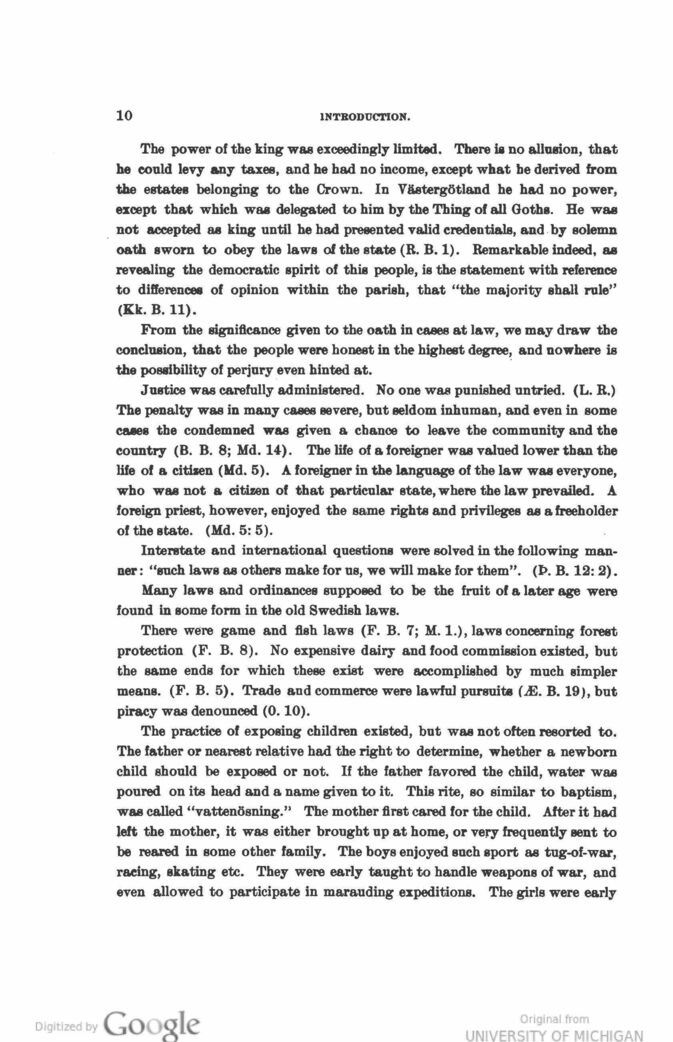
Full resolution (JPEG) - On this page / på denna sida - Sidor ...

<< prev. page << föreg. sida << >> nästa sida >> next page >>
Below is the raw OCR text
from the above scanned image.
Do you see an error? Proofread the page now!
Här nedan syns maskintolkade texten från faksimilbilden ovan.
Ser du något fel? Korrekturläs sidan nu!
This page has never been proofread. / Denna sida har aldrig korrekturlästs.
10
INTRODUCTION.
The power of the king was exceedingly limited. There is no allusion, that
he could levy any taxes, and he had no income, except what be derived from
the estates belonging to the Crown. In Västergötland he had no power,
except that which was delegated to him by the Thing of all Götha. He was
not accepted as king until he had presented valid credentials, and by solemn
oath sworn to obey the laws of the state (R. B. 1). Remarkable indeed, as
revealing the democratic spirit of this people, is the statement with reference
to differences of opinion within the parish, that "the majority shall rule"
(Kk. B. 11).
From the significance given to the oath in cases at law, we may draw the
conclusion, that the people were honest in the highest degree, and nowhere is
the possibility of perjury even hinted at.
Justice was carefully administered. No one was punished untried. (L. R.)
The penalty was in many cases severe, but seldom inhuman, and even in some
cases the condemned was given a chance to leave the community and the
country (B. B. 8; Md. 14). The life of a foreigner was valued lower than the
life of a citixen (Md. 5). A foreigner in the language of the law was everyone,
who was not a citizen of that particular state, where the law prevailed. A
foreign priest, however, enjoyed the same rights and privileges as a freeholder
of the state. (Md. 5: 5).
Interstate and international questions were solved in the following
manner : "such laws as others make for us, we will make for them". (I>. B. 12: 2).
Many laws and ordinances supposed to be the fruit of a later age were
found in some form in the old Swedish laws.
There were game and fish laws (F. B. 7; M. 1.), laws concerning forest
protection (F. B. 8). No expensive dairy and food commission existed, but
the same ends for which these exist were accomplished by much simpler
means. (F. B. 5). Trade and commerce were lawful pursuits (Æ. B. 19), but
piracy was denounced (0.10).
The practice of exposing children existed, but was not often resorted to.
The father or nearest relative had the right to determine, whether a newborn
child should be exposed or not. If the father favored the child, water was
poured on its head and a name given to it. This rite, so similar to baptism,
was called "vattenösning." The mother first cared for the child. After it had
left the mother, it was either brought up at home, or very frequently Bent to
be reared in some other family. The boys enjoyed such sport as tug-of-war,
racing, skating etc. They were early taught to handle weapons of war, and
even allowed to participate in marauding expeditions. The girls were early
<< prev. page << föreg. sida << >> nästa sida >> next page >>